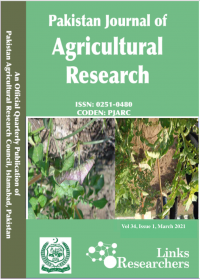Greater productions of cereals with excessive use of chemical fertilizers bring forth higher production cost and pollute the soil environment. Therefore, some alternative but sustainable, environment friendly and cost effective approaches of nutrient management can be a possible solution for these problems. So the present study was conducted at Agronomic Research Area, Groundnut Research Station Attock, Pakistan during rabi 2013-14 to check the effect of different integrated nutrients management strategies on the yield and quality of wheat. The experiment was laid out in randomized complete block design (RCBD) with factorial arrangement by using three replications. Treatments included different fertilizers combinations i.e (F1) control, (F2)100% recommended dose of NPK, (F3) 75% recommended dose of NPK + 1.5 t ha-1 poultry manure(PM), (F4) 75% of recommended dose of NPK +3 t ha-1 farmyard manure (FYM) and(F5) 75% of recommended dose of NPK + 4.5 t ha-1 press-mud (PrM) along with seed inoculants (I1) Azospirillum and (I2) Azotobacter separately for each plot. Data regarding yield, quality and nutrients use efficiency parameters were collected and analyzed. Results depicted that interactive effect of both the factors was non-significant for all the observed parameters. Considering the individual effect of fertilizer combinations, maximum number of productive tillers m-2 (392.3), number of grains per spike (45.27), 1000-grain weight (44.04 g), biological yield (14.11 t ha-1), grain yield (5.40 t ha-1) protein contents (12.52%), nitrogen (28.22kg kg-1), phosphorus (34.85 kg kg-1) and potassium (47.40 kg kg-1) use efficiency were obtained with the treatment F2 (100% recommended dose of NPK).While in seed inoculants, maximum values of yield and yield contributing parameters were obtained in I1 (Inoculation with Azospirillum). However despite the better performance of F2, economic analysis showed that maximum net income and benefit cost ratio were obtained where (F3)75% recommended dose of NPK + 1.5 t ha-1 poultry manure was applied. Therfore, it can be concluded that 75% recommended dose of NPK + 1.5 t ha-1 PM along with Azospirillum seed inoculation could be a better management approach for sustainable wheat production.







